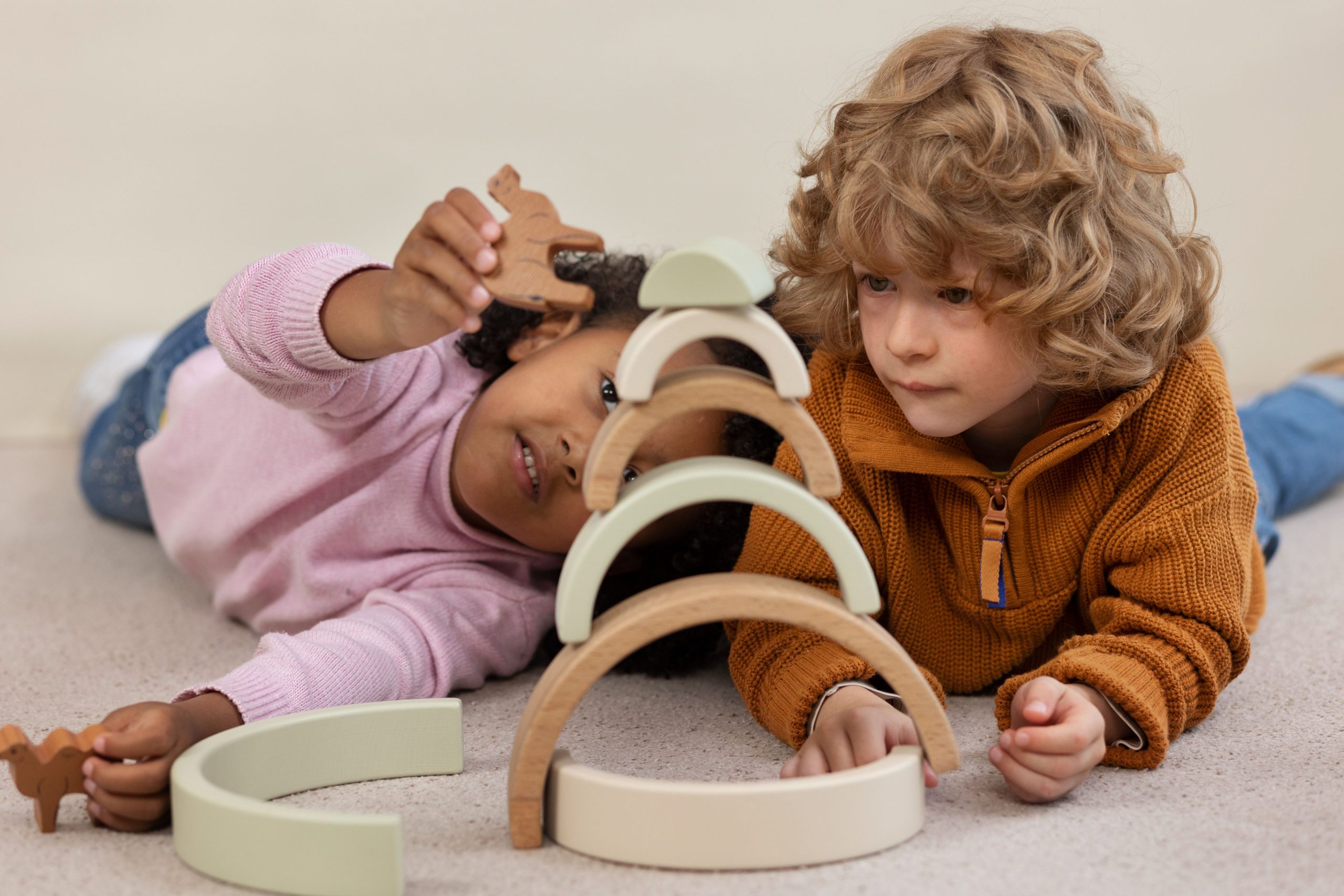
Understanding Unstructured Play for Preschoolers
As parents and caregivers, we all want our preschoolers to be happy, healthy, and thriving. One way we can help them achieve these goals is by encouraging unstructured play. Unstructured play refers to any type of play that is child-directed and has no set rules or guidelines. In this article, we will explore the basic types of unstructured play and their benefits for preschoolers.
The Basic Types of Unstructured Play
1. Free Play
Free play is perhaps the most common type of unstructured play. It involves allowing preschoolers to explore their environment and engage in play activities without any specific direction or guidance. Free play can take many forms, such as imaginative play, building with blocks, or exploring outdoors. It is essential for preschoolers as it allows them to develop their creativity, imagination, and problem-solving skills.
2. Rough-and-Tumble Play
Rough-and-tumble play is a type of unstructured play that involves physical activity and play-fighting. It can be an effective way for preschoolers to release excess energy and develop their motor skills. This type of play teaches them to set boundaries, take turns, and communicate effectively with playmates.
3. Imaginative Play
Imaginative play involves using one’s imagination to create scenarios and stories. It can take many forms, such as playing dress-up or acting out scenes from a book or movie. This type of play is crucial for preschoolers as it helps them develop creativity, empathy, and social skills.
4. Constructive Play
Constructive play involves building and creating things, such as structures, models, or art. It helps preschoolers develop fine motor skills, hand-eye coordination, and spatial awareness. By engaging in constructive play, they learn to problem-solve, think critically, and use creativity to build and create.
5. Sensory Play
Sensory play involves exploring the senses through activities like playing with sand, water, or play-dough. It is an effective way for preschoolers to develop sensory processing skills, regulating emotions, focusing attention, and enhancing cognitive skills.
6. Outdoor Play
Outdoor play is important for physical fitness, coordination, and motor skills development. It also fosters an appreciation for nature, promoting a sense of environmental responsibility.
The Benefits of Unstructured Play for Preschoolers
We can explore in detail the many benefits of unstructured play for preschoolers, focusing on cognitive, social, emotional, and physical development, as well as how it promotes creativity, independence, and self-esteem.
Defining Unstructured Play
Unstructured play is defined as play that is child-led and free from adult direction or rules. It is spontaneous, open-ended, and allows preschoolers to explore and experiment with their environment and imagination.
Exploring Different Types of Unstructured Play
1. Imaginative Play
Imaginative play allows preschoolers to use their imagination and creativity by creating scenarios and acting out roles, fostering creativity, empathy, and social skills.
2. Exploratory Play
Exploratory play lets preschoolers explore and experiment with their environment, developing curiosity, problem-solving skills, and a sense of independence.
3. Constructive Play
Constructive play involves building, designing, and creating, developing fine motor skills, spatial awareness, and problem-solving abilities.
4. Physical Play
Physical play involves movement and physical activity, aiding in gross motor skills, balance, coordination, and overall physical fitness.
5. Social Play
Social play involves interacting with others, promoting communication, negotiation, conflict resolution, empathy, and social awareness.
The Advantages of Unstructured Play
1. Fosters Creativity and Imagination
Unstructured play provides opportunities for preschoolers to use their imagination and develop creative thinking skills.
2. Enhances Cognitive Development
Unstructured play enhances preschoolers’ cognitive development by improving problem-solving abilities and spatial awareness.
3. Develops Social Skills
Unstructured play helps preschoolers interact with others, developing communication, negotiation, and conflict resolution skills.
4. Encourages Physical Activity
Unstructured play encourages physical activity, promoting gross motor skills, balance, coordination, and overall physical fitness.
5. Reduces Stress
Unstructured play provides a safe space for preschoolers to unwind and relax, reducing stress and anxiety levels.
6. Fosters Independence
Unstructured play encourages preschoolers to be independent, make their own choices, and take responsibility for their actions.
7. Boosts Self-Esteem
Unstructured play provides opportunities for preschoolers to succeed, boosting their self-esteem and confidence.
Encouraging Unstructured Play: Practical Tips for Parents
Practical tips for parents and caregivers to encourage unstructured play, including providing open-ended materials, creating a safe environment, allowing uninterrupted playtime, encouraging outdoor play, and embracing messy play.
Debunking Myths About Unstructured Play
Debunking common myths and misconceptions about unstructured play, emphasizing its importance and dispelling notions of it being a waste of time, unsafe, or unproductive.
The Role of Technology in Unstructured Play
Exploring the role of technology in unstructured play, discussing how it can be both a facilitator and a barrier, and finding a balance between screen time and unstructured play activities.
Unstructured Play and Early Childhood Education
Discussing the relationship between unstructured play and early childhood education, exploring how it aligns with child-centered education principles and enhances academic and social-emotional learning outcomes.
Parental Involvement in Unstructured Play
Exploring the important role parents play in supporting and facilitating unstructured play for preschoolers, including encouraging curiosity, providing opportunities for free play, and balancing adult-led activities with unstructured play.
Unstructured play is a crucial aspect of preschoolers’ development, providing them with opportunities to explore, create, and imagine, while developing important skills such as problem-solving, risk-taking, and social interaction. As caregivers, parents, and educators, it is our responsibility to encourage and facilitate unstructured play for preschoolers, as it lays the foundation for a lifetime of learning and success.


